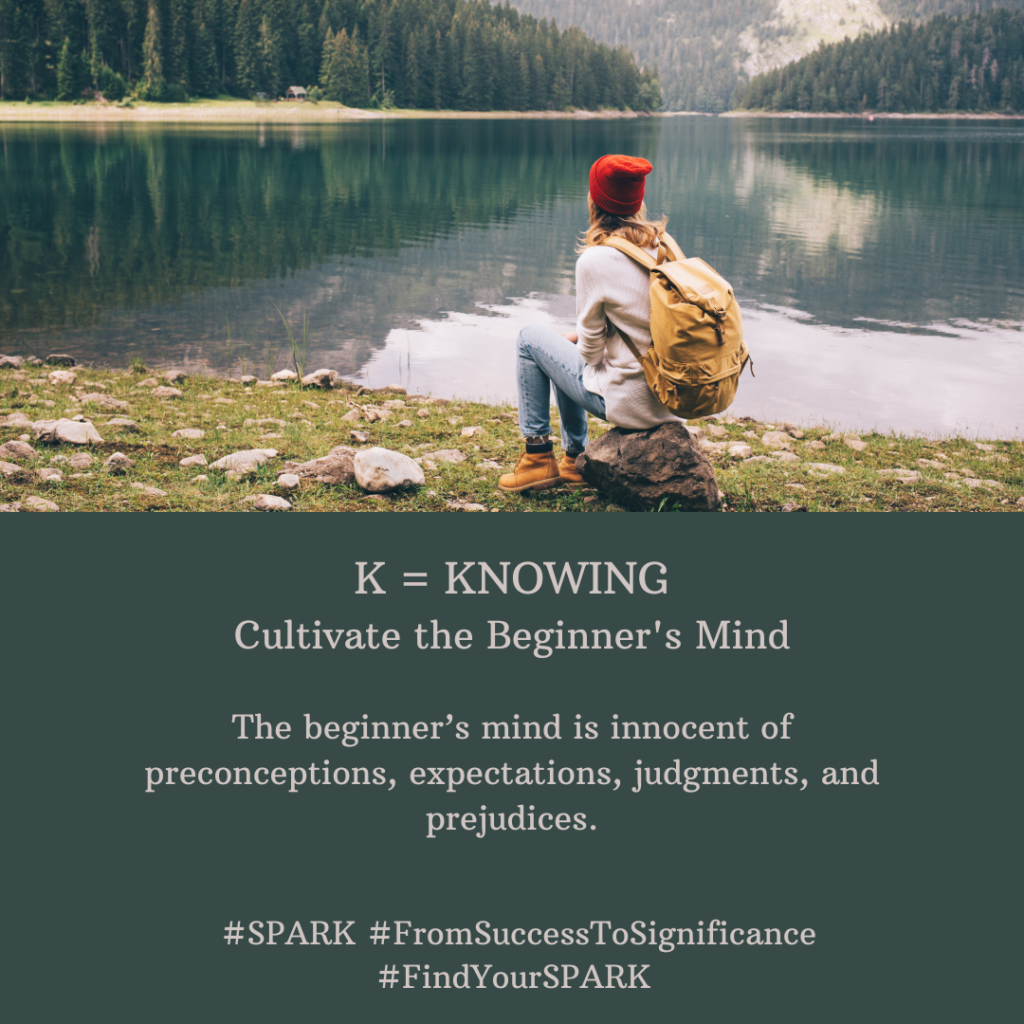
As counterintuitive as it may sound, the first stage of Knowing is not knowing. Not knowing has a beauty of its own, a purity. By cultivating the beginner’s mind and being willing to “not know,” you allow the possibilities for Knowing to emerge.
So, what is the beginner’s mind? The beginner’s mind is an element of Zen practice that is motivated by an unbound awareness. It is the mind that is innocent of preconceptions, expectations, judgments, and prejudices.
A popular Zen Buddhism story tells us about an emperor, also a devout Buddhist, who invites a great Zen master to his palace to ask him deeper questions about Buddhism.
“What is the highest truth of the holy Buddhist doctrine?” the emperor asked.
“Vast emptiness … and not a trace of holiness,” the master replied.
“If there is no holiness,” the emperor said, “then who or what are you?” “I do not know,” the master replied.
Therefore, not knowing is not ignorance; not knowing is a state of innocence. There is neither knowledge nor ignorance; both have been transcended. The mind can be knowledgeable, and the mind can be ignorant.
Not knowing simply means a state of “no mind.” Knowledge and ignorance are only different in terms of the quantity of information, not in their qualities. However, tapping into a deep-seated Knowing transcends both knowledge and ignorance.
(Excerpt from my latest book, SPARK: Journey From Success To Significance)